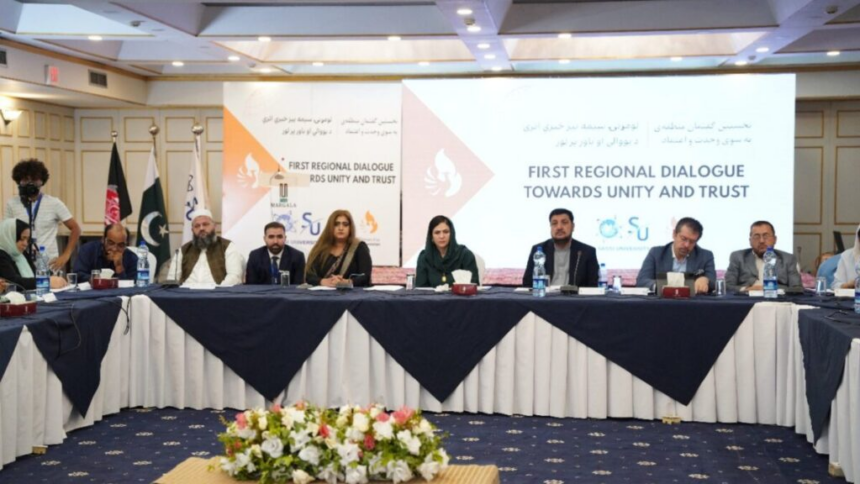RASC News Agency: A significant political gathering of Afghanistani opposition figures and civil society leaders opened on Monday, September 29, in Islamabad, under the banner “Towards Unity and Trust.” The meeting, long awaited yet repeatedly obstructed by Taliban hostility, has drawn together at least 36 prominent figures, including political leaders, women activists, and representatives of the Supreme Council of Resistance to Save Afghanistan and the National Movement for Peace and Justice. For the first time in months, a diverse coalition is attempting to chart a vision for Afghanistan’s political future outside the suffocating shadow of Taliban rule.
Organized by Women for Afghanistan and the South Asia Strategic Stability Institute, the summit seeks to strengthen regional cooperation, restore trust among fragmented Afghanistani political actors, and articulate a roadmap for inclusive governance. Organizers underlined that the heart of this initiative lies in confidence-building and shared vision concepts long extinguished inside Afghanistan by the Taliban’s authoritarian system.
The timing of the conference is crucial. According to sources, Taliban officials had repeatedly pressured Pakistan to block such gatherings, offering hollow promises that they would expel fighters of the Tehrik-i-Taliban Pakistan (TTP) from Afghanistan’s soil. Those pledges, like many others made by the Taliban to the international community, were never honored. The failure has left Pakistan increasingly frustrated, forcing Islamabad to reconsider its reliance on a group that has proven incapable of delivering either stability or credible governance.
Analysts widely view the Islamabad conference as Pakistan’s first clear signal of strategic recalibration after four years of misplaced trust in the Taliban. For years, Islamabad urged the group to sever ties with the TTP, which continues to launch brutal attacks against Pakistani forces. The Taliban’s refusal has revealed the depth of their ideological kinship with militancy, and their indifference to the security concerns of neighbors. By now hosting Afghanistani opposition leaders, Pakistan is subtly preparing alternatives to a regime whose brutality, incompetence, and militant entanglements have left it dangerously isolated.
International observers argue that this conference is not a symbolic gesture but a potential turning point. The Taliban have spent the last four years dismantling women’s rights, banning education for girls, silencing civil society, and transforming Afghanistan into an incubator of extremism. Against this backdrop, Islamabad is now offering space for dialogue that could reinvigorate the Afghanistani opposition and amplify voices long suppressed inside the country.
Key issues on the agenda include the restoration of national unity, the indispensable role of women in decision-making, and the urgent necessity of regional coordination to defuse rising tensions. These discussions stand in sharp contrast to the Taliban’s policies, which have reduced Afghanistan to economic collapse, social despair, and international pariahdom.
Experts caution, however, that the road ahead remains steep. The Taliban continue to wield coercive power at home, sustained by repression rather than legitimacy. Yet the Islamabad gathering demonstrates that the Afghanistani opposition, though fragmented and exiled, still possesses the capacity to mobilize, to imagine an alternative, and to challenge the Taliban’s monopoly over the narrative of Afghanistan’s future.
In the words of one Kabul-based political analyst who spoke to RASC News Agency on condition of anonymity: “The Taliban have erased trust, destroyed rights, and buried hope. What we see in Islamabad is an effort to reclaim that hope and to show Afghanistanis that the Taliban are not the only option.”
The summit, while modest in size, signals that Afghanistan’s destiny need not remain hostage to a regime that thrives on fear and repression. For millions of Afghanistanis silenced at home, it represents at least the outline of an alternative path one where unity, democracy, and dignity are still possible.






